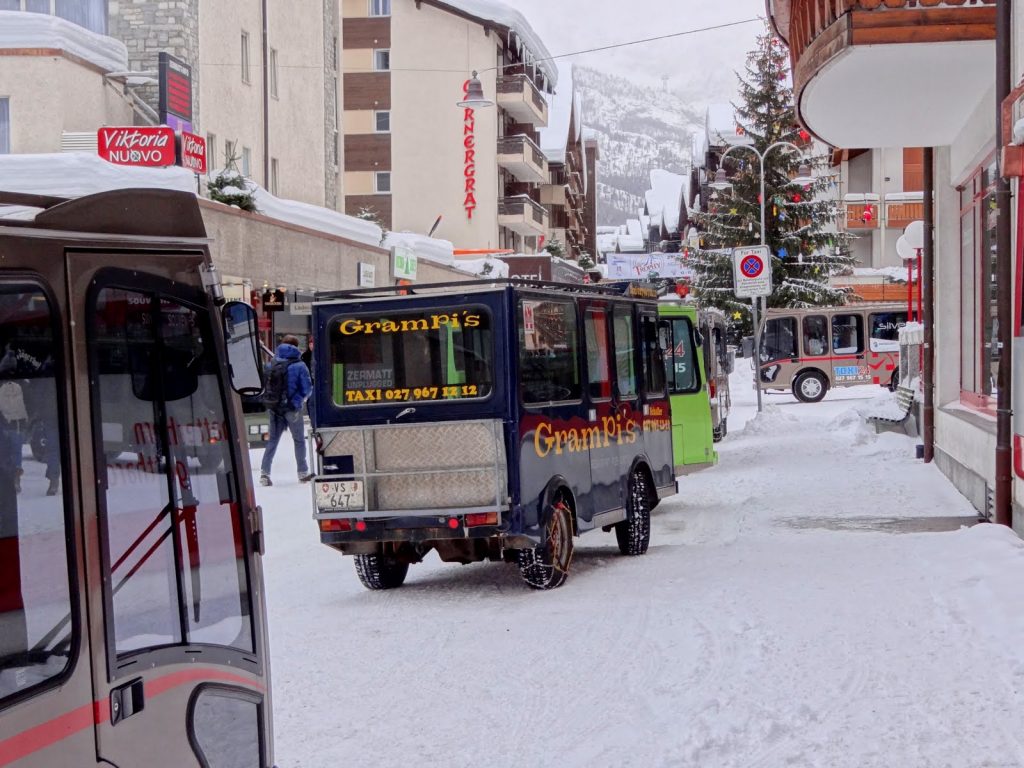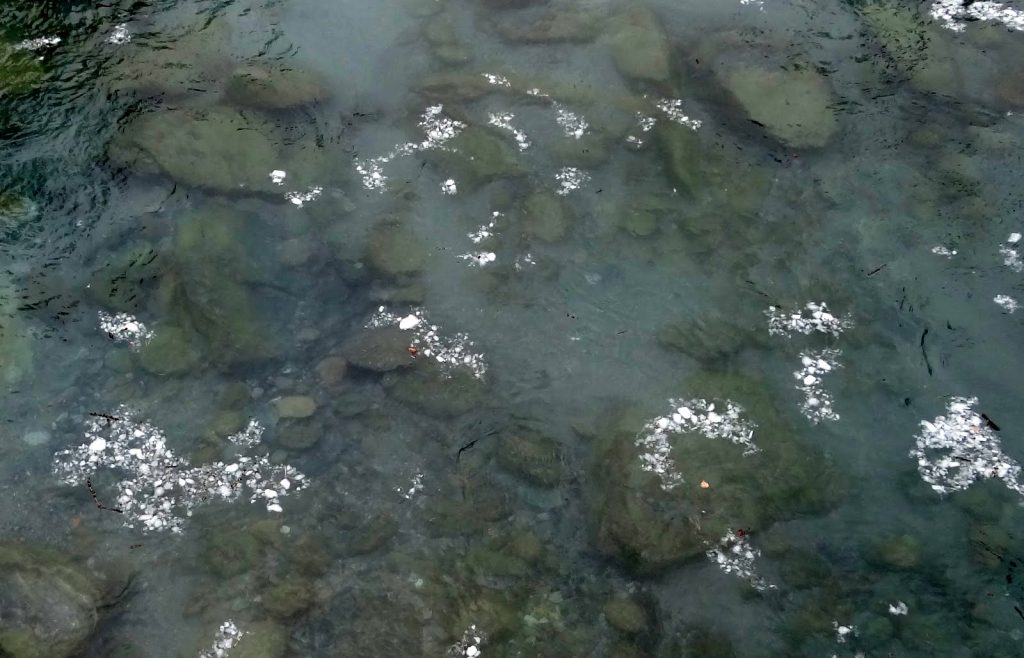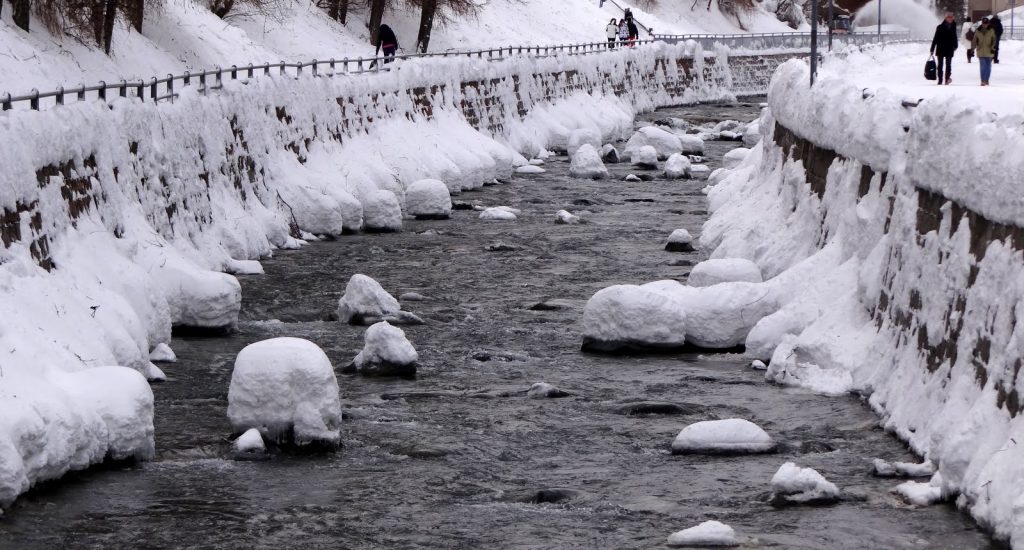Rodion took advantage of the complete lack of skiing in Zermatt today to learn how to run with better technique. I’d gone through some of the theory with him the previous evening so we were able to start running straight away and then work on things while running. The only brief pause was to film Rodion’s stride. Rodion, 11 years old, had never run more than a couple of kilometre’s in his life so this was a real adventure for him. He covered six kilometres (starting at 7 minutes into the trail posted here) and almost none of it was flat. His first ever real long distance run was not only on on steep climbs but also at high altitude!
In Rodion’s skiing he has been having difficulty in becoming aware of the full role of active use of his Centre of Mass. The key to efficient running also depends upon intelligent use of the centre of mass. There are several key mechanical issues in skiing that can be worked upon directly in running – notably “posture”, upper/lower body separation and motion of the Centre of Mass. Great body awareness can be developed though mindful running and mental powers of focus, concentration, will power and relaxation are also benefits of creating a constructive dialogue directly with your own body. Rodion could begin to appreciate all of this as we discussed it during the workout.
Even on Rodion’s first run the basics of efficient running are already in place. He is wearing Nike Free 3.0 shoes which simulate a “barefoot” effect despite having slight heels – and he is also wearing new leggings from North Face that can be used as either a base-layer, mid-layer or in this case – outer-layer. It was well below zero °C and the sun had just gone down with strong gusts of wind – so Rodion had a lot to cope with while working on his new technique. You can see in the video he is successfully landing mid-foot and then the foot is pronating onto the forefoot and lastly onto the heel. He is avoiding “reaching ahead” with his feet, legs and hips (Go back to his first video clip in this series – day 1 & 2 – to see how NOT to move!). The stride extends backwards, the feet fall in front of each other (straight line), the hip follows the foot backwards and rotates the spine right up to the 12th vertebrae (rib cage).
Rodion asked why I was using short strides and a high cadence. I explained that the elasticity of the tendons works more efficiently at around 80 to 90 strides per minute – so it is always better to try to keep this rhythm even when running relatively slowly.
We tried a few accelerations to make sure he could feel that speed came from relaxation and gravity – not power from the legs. Running uphill the task was to use the big gluteus-maximus and hamstring muscles while extending the stride backwards and to avoid using the smaller leg muscles. The most important part of climbing is to avoid “pushing off”. The focus was on just picking up the feet using the psoas muscles (core muscles) to do the job. I didn’t use those names for the muscles but just pointed to them so that he understood.
For breathing the instruction was to breathe both in and out through the nose and low down in the stomach (diaphragm) – but this was clearly too difficult at this stage for Rodion.
The arms were to be swung actively backwards as the leg on the same side recovered forwards with the psoas muscles – this being one way to prevent a painful “stitch” in the side – something which Rodion said he had experienced before.
I explained to Rodion that when he lost focus on whatever he was working on all he had to do was to try to re-focus. This is how you exercise strengthen the mind. Rodion was clearly enjoying the experience. Hopefully this is something he will be able to continue. The “mindful” approach to running is the same in general as he has been taught in skiing – so this is a very useful exercise.
Zermatt’s “traffic free” streets! In reality the only difference is that there are no controls or rules for the vehicles so they are more threatening than ever to pedestrians.
Ice coagulating in the rapidly flowing glacial river water..
At least Zermatt hasn’t covered their river over with concrete as Val d’Isère has done!



